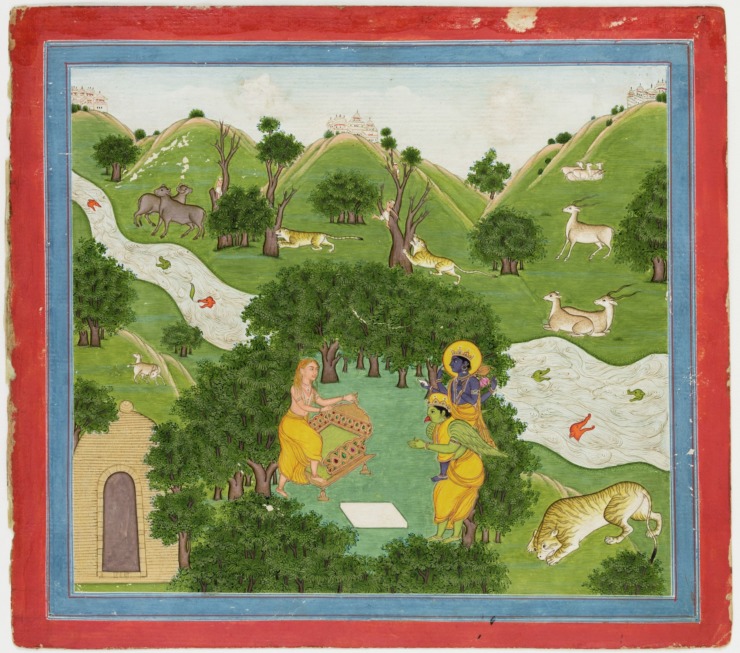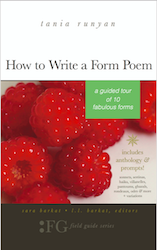The Indian Upon God
I passed along the water’s edge below the humid trees,
My spirit rocked in evening light, the rushes round my knees,
My spirit rocked in sleep and sighs; and saw the moorfowl pace
All dripping on a grassy slope, and saw them cease to chase
Each other round in circles, and heard the eldest speak:
Who holds the world between His bill and made us strong or weak
Is an undying moorfowl, and He lives beyond the sky.
The rains are from His dripping wing, the moonbeams from His eye.
I passed a little further on and heard a lotus talk:
Who made the world and ruleth it, He hangeth on a stalk,
For I am in His image made, and all this tinkling tide
Is but a sliding drop of rain between His petals wide.
A little way within the gloom a roebuck raised his eyes
Brimful of starlight, and he said: The Stamper of the Skies,
He is a gentle roebuck; for how else, I pray, could He
Conceive a thing so sad and soft, a gentle thing like me?
I passed a little further on and heard a peacock say:
Who made the grass and made the worms and made my feathers gay,
He is a monstrous peacock, and He waveth all the night
His languid tail above us, lit with myriad spots of light.
-WB Yeats
Enjoy Artistic Representations of “The Indian Upon God” by WB Yeats

Mythical Peacock with a Woman’s Head, unknown painter, ca. 1750.

Illustrations to Life of Dhurva Maharaj: #20 God gives Dhurva his throne upon which he can fly anywhere. Unknown painter, 1800.
Listen to these Readings of “The Indian Upon God”
Listen to these Musical Interpretations of “The Indian Upon God” by WB Yeats
About W.B. Yeats
William Butler Yeats was born in 1865 in Dublin into a family of the Protestant Anglo-Irish landowning class. He lived in Dublin and London during his growing up years. He was very much affected by the politics of the time, as he was a young adult when the protestant minority in power began to be displaced by the predominantly Catholic nationalist movement.
Yeats studied law for a time but eventually moved to London to study art. He was an accomplished playwright, and a founder of the Irish Theatre which was later to become the Abbey Theatre. While he is better known for his poetry, Yeats was awarded the Nobel Prize for Literature in 1923 more for his theatrical works than his verse. He was the first Irishman to be awarded the prize.
His first collection of poems was published in 1889, and there is strong evidence of the influence of Edmund Spenser and Percy Bysshe Shelley. Later, his poetry became more rooted in realism and the physical, with influence of Ezra Pound and William Blake apparent. Common themes in his poetry include mysticism, spiritualism, the occult and Irish identity and nationalism.
Yeats was appointed to the Irish senate in 1922. He was married, but had an ongoing relationship of sorts with a former love, Irish activist and revolutionary Maud Gonne. Known as one of the greatest poets of the 20th century, Yeats died in 1939.
That’s it for The Indian Upon God!
BUY ‘HOW TO WRITE A FORM POEM’ NOW!
